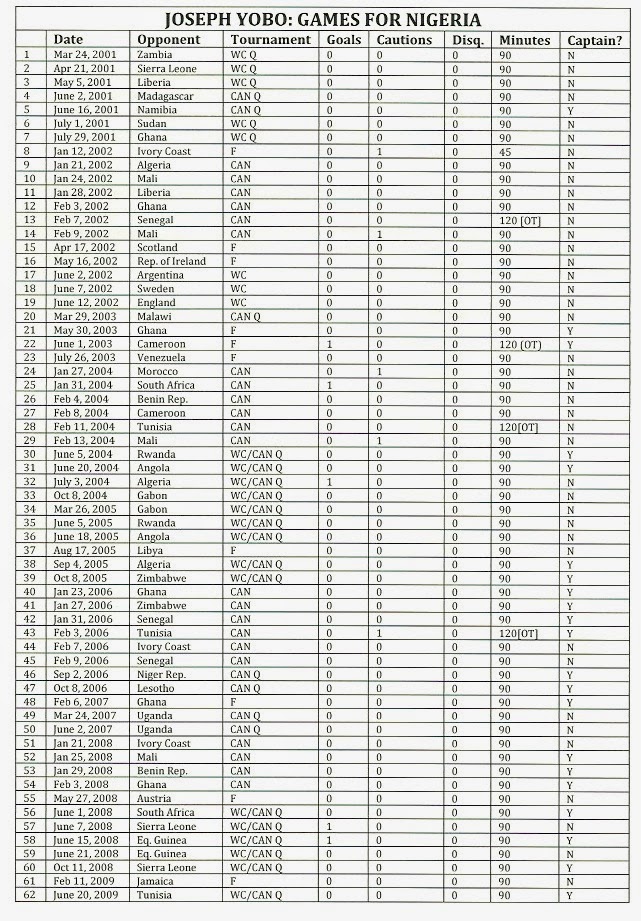Discovering Super Eagles: Data, Statistics Beget History.
Supporters of Nigeria's national team - Super Eagles - are true fan-atics when it comes to supporting their team. They share the belief that the Super Eagles, based on accessibility to top Nigerian football talents, can easily win the World Cup. Though the statement above is delusional, it is easy to understand why this belief exists among the Eagles' fanatics. After all, Nigeria has won regularly at the youth level and, thus, linear thinking leads one to believe that domination at the youth level leads to domination at the senior level.
However, the reality is that Nigeria is no more than an average team at the global level and has no pedigree to expect cup winning at the rate it fans may believe or hope. Nevertheless, the reality is also that Nigeria has come a long way to the point where it is now frequently considered among the top teams in Africa. That part is not delusional. It is supported by actual data. What we provide here is data tracking the team's rise since its first qualifying game towards a competitive tournament i.e 1960 Olympics. Prior to those qualifiers, Nigeria merely played friendly internationals against Ghana even though those games were for a trophy -- the Zalco Cup.
Scoring Rubrics
The method for tracking the team's performance relies on allocating points based on weights assigned to identified competitions. First, our unit of measure is a block of years consisting of four years or a World Cup cycle. This means that the usual period would include a World Cup and two Cup of Nations. Additionally we also scored for the Olympics up until 1988 because the full national team was eligible to play at the Olympics up until 1988. The same applies to the All Africa Games.
The Table of rubrics is provided below. You will note that no point is awarded for elimination in the qualifying rounds of both the Cup of African Nations and the All Africa Games since the team was and is fully expected to get to the tournament proper. However, because determining Africa's representatives to the global events -- the World Cup and Olympics -- is more challenging, a point ONLY is awarded for elimination at the final stage of the qualifier.
Some may wonder why a second round appearance at the World Cup does not attract more points than winning the Nations Cup. The rationale is that only one African country can win the Cup of Nations but, theoretically, multiple African countries may get to the second round of the World Cup. Nonetheless, we assign more points for the World Cup quarter finals in spite of the theory above. This is because few African countries have reached the quarter final of the World Cup.
Furthermore, we use percentages (%) as a comparative measure since the maximum possible points that the team may obtain each World Cup cycle may differ because of variables such as non-participation (e.g. World Cup 1966, Nations Cup 1996 and 1998) and/or discontinuation of a competition (e.g. Olympics and All Africa Games). Percentage correct this problem of variation since it focuses on proportionality and is not affected by volume of competition that the team is involved in. The team's performance is then a percentage of the maximum points that it actually obtains in a competitive period (see Table 2).
Analysis
The Graph below shows that the team made progress from its early years and peaked with its performance during the period that began in 1992 and ended with the 1994 World Cup. This the period that most Nigerian football supporters refer to as the Golden Era. However, it is also important to note a period of decline that occurred from 2003 and ending with the 2006 World Cup. That represents the poorest result for the team since it obtained 22% in the 1983 to 1986 period. Overall, the team's performance level appears to be at 50%, a height it first reached under the tutelage of Coach Father Tiko in the late 1970s.




Comments
Post a Comment